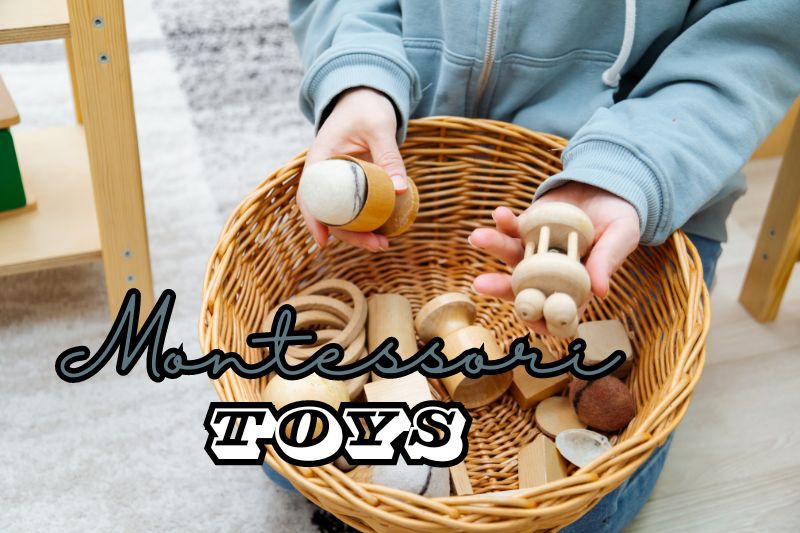Imagine a toy that not only entertains your child but also helps them develop crucial life skills. Montessori toys do just that. Rooted in the educational philosophy of Dr. Maria Montessori, these toys focus on fostering independence, concentration, and a love for learning.
Unlike conventional toys, these are designed to be simple, natural, and purposeful. They encourage children to explore, experiment, and understand the world around them in a more profound way.
What Are Montessori Toys?
Montessori toys are inspired by the Montessori Method, an educational approach developed by Dr. Maria Montessori in the early 1900s. This method emphasizes hands-on, self-directed learning, and these toys reflect that philosophy.
Key Characteristics
- Natural Materials: Montessori toys are often made from wood, metal, cotton, wool, and other natural materials. This gives them a warm, tactile quality that plastic toys lack.
- Simple Design: They are designed to be aesthetically pleasing and straightforward, without unnecessary bells and whistles.
- Purposeful Play: Each toy serves a specific developmental purpose, whether it’s improving fine motor skills, fostering problem-solving abilities, or teaching basic math concepts.
Their Benefits
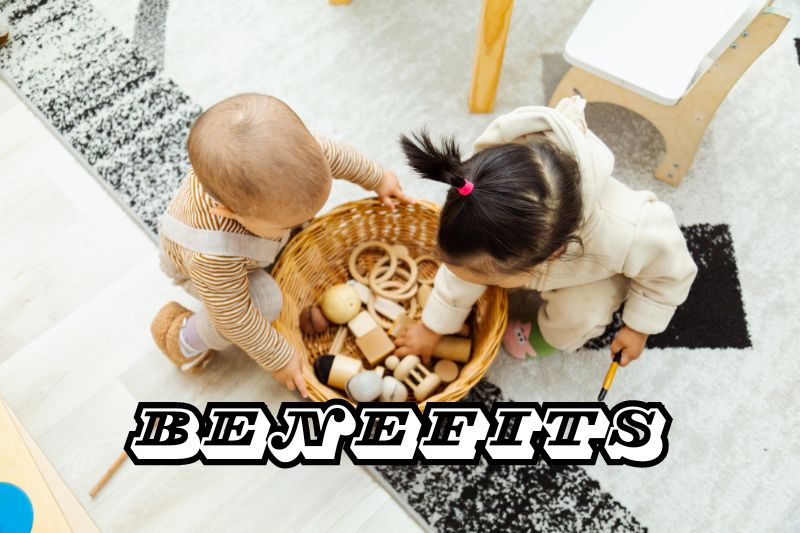
Montessori toys offer a range of benefits that support your child’s growth and development.
Encouraging Independence
One of the core principles of Montessori education is fostering independence. These toys are designed to be self-correcting, meaning children can figure out if they have made a mistake and learn to correct it on their own. This promotes a sense of autonomy and confidence.
Developing Concentration
Montessori toys often require focus and patience, helping children develop their concentration skills. For example, threading beads or stacking blocks requires a child to focus intently on the task at hand.
Enhancing Fine Motor Skills
Many Montessori toys are geared towards improving fine motor skills. Activities like puzzle assembly, block building, and bead threading help children develop the precision and coordination needed for tasks like writing and buttoning clothes.
How They Differ from Traditional Toys
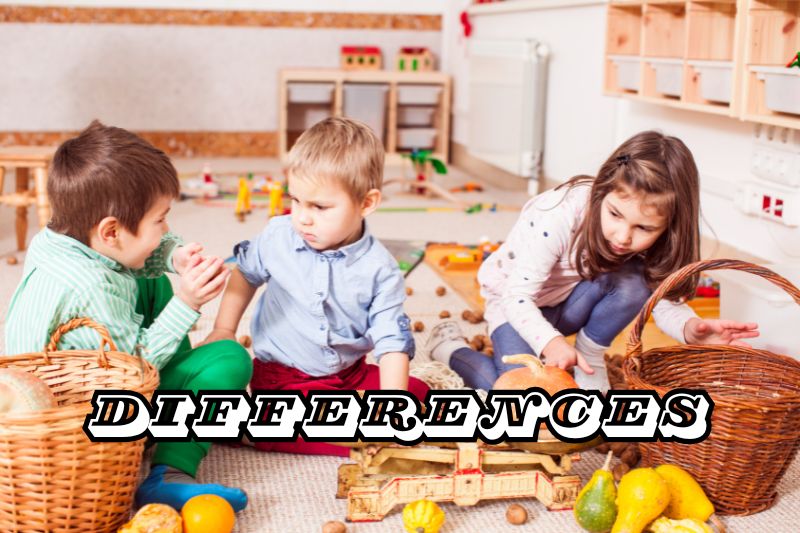
Montessori toys are distinct from traditional ones in several key ways:
Simplicity vs. Complexity
Traditional toys often come with lights, sounds, and multiple functions designed to entertain. While these features can be fun, they can also be overwhelming and distracting. Montessori toys, on the other hand, are simple and designed to engage a child’s mind rather than overstimulate it.
Focus on Real-Life Skills
Montessori toys often mimic real-life activities. For example, a child might play with a toy kitchen set that includes realistic utensils and ingredients. This helps children understand and engage with the world around them.
Quality over Quantity
In a Montessori environment, the emphasis is on having a few high-quality toys rather than an abundance of options. This encourages children to take care of their toys and focus more deeply on their play.
Popular Montessori Toys and Their Uses
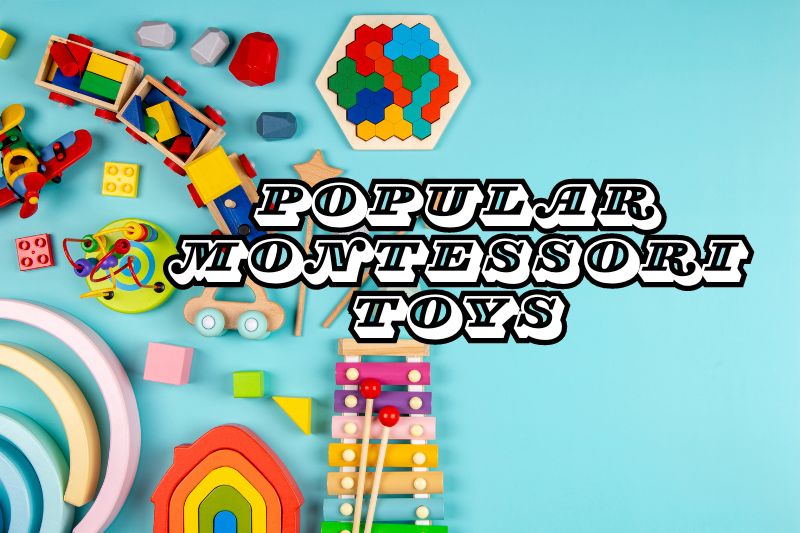
These toys are specifically designed to support children’s development through hands-on learning and exploration. Here are some of the most popular ones and how they can benefit your child’s growth and learning.
Wooden Blocks
Wooden blocks are a staple in Montessori playrooms. They help children understand spatial relationships, balance, and geometry while encouraging creativity and imagination.
Sensory Bins
Sensory bins filled with rice, beans, or sand can provide hours of tactile exploration. Children can bury objects, sift through the materials, and experience different textures, enhancing their sensory development.
Puzzles
Montessori puzzles are often made of wood and feature simple designs that help children develop problem-solving skills and hand-eye coordination. These puzzles are typically self-correcting, meaning children can see if a piece fits correctly without adult intervention.
Practical Life Toys
These toys replicate everyday activities, such as sweeping, pouring, or cooking. They help children develop practical life skills and encourage independence. For instance, a small broom and dustpan set allows children to learn about cleaning and taking care of their environment.
The Long-Term Impact
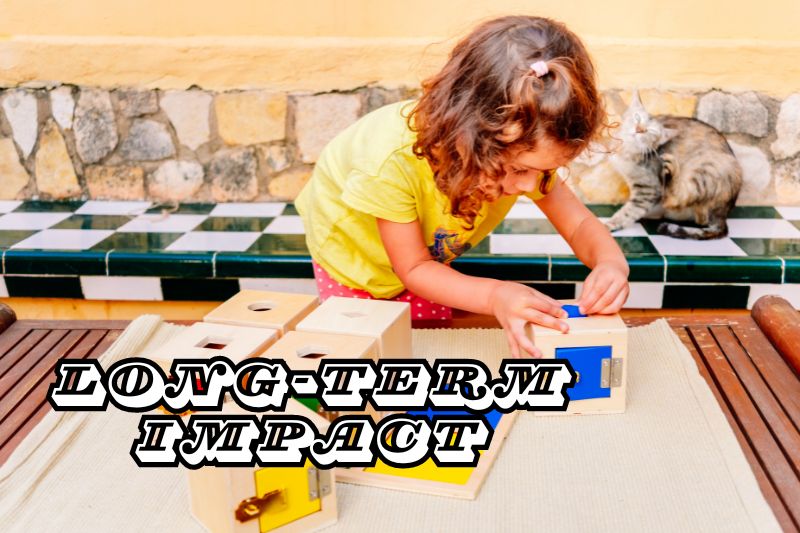
Montessori toys do more than just keep children occupied; they help build essential skills that last a lifetime.
Building a Foundation for Lifelong Learning
These toys are not just about immediate gratification; they help build a foundation for lifelong learning. By encouraging curiosity and a love for discovery, they help children develop a positive attitude toward learning that can last a lifetime.
Fostering Emotional Intelligence
Many Montessori activities involve social interaction, whether it’s playing with other children or engaging in role-play. This helps children develop empathy, communication skills, and emotional intelligence.
Preparing for Academic Success
The skills developed through Montessori play, such as concentration, problem-solving, and fine motor skills, are directly transferable to academic success. Children who engage with these toys often show better preparedness for school and excel in various subjects.
How to Choose the Right Toy?
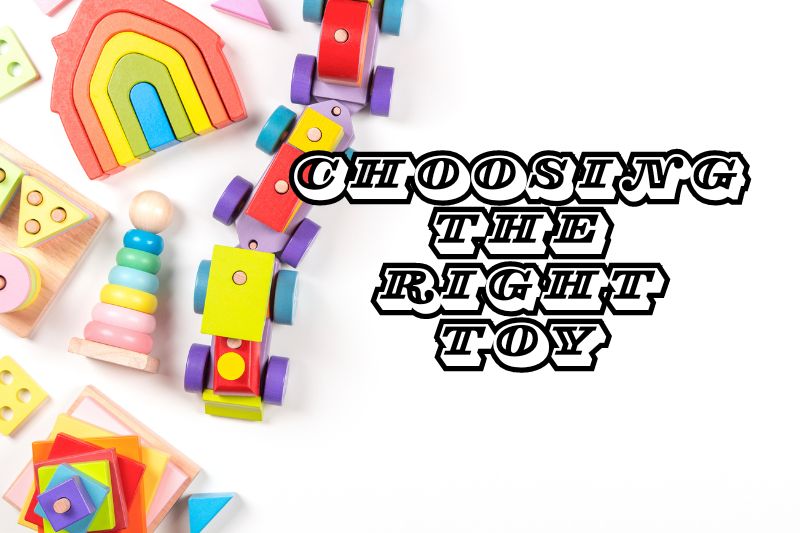
By focusing on a few key factors, you can find toys that are both enjoyable and beneficial for your child’s development.
Focus on Age-Appropriate Toys
Choose toys that are suitable for your child’s age and developmental stage. Younger children might benefit from simple stacking toys, while older children might enjoy more complex puzzles and building sets.
Look for Open-Ended Toys
Open-ended toys, like blocks and art supplies, can be used in various ways and encourage creativity and imagination. These toys can grow with your child, providing new challenges as they develop.
Prioritize Quality over Quantity
Invest in a few high-quality toys made from natural materials rather than filling your home with an abundance of plastic ones. High-quality toys are more durable, safer, and often more engaging for children.
Involve Your Child in the Selection Process
If possible, involve your child in choosing their toys. This can help ensure they are genuinely interested in the toys and more likely to engage with them meaningfully.
In Summary
Montessori toys offer a unique and enriching play experience that can significantly benefit your child’s development. By focusing on independence, concentration, and real-life skills, these toys provide more than just entertainment. They help lay the foundation for a lifetime of learning and growth.

